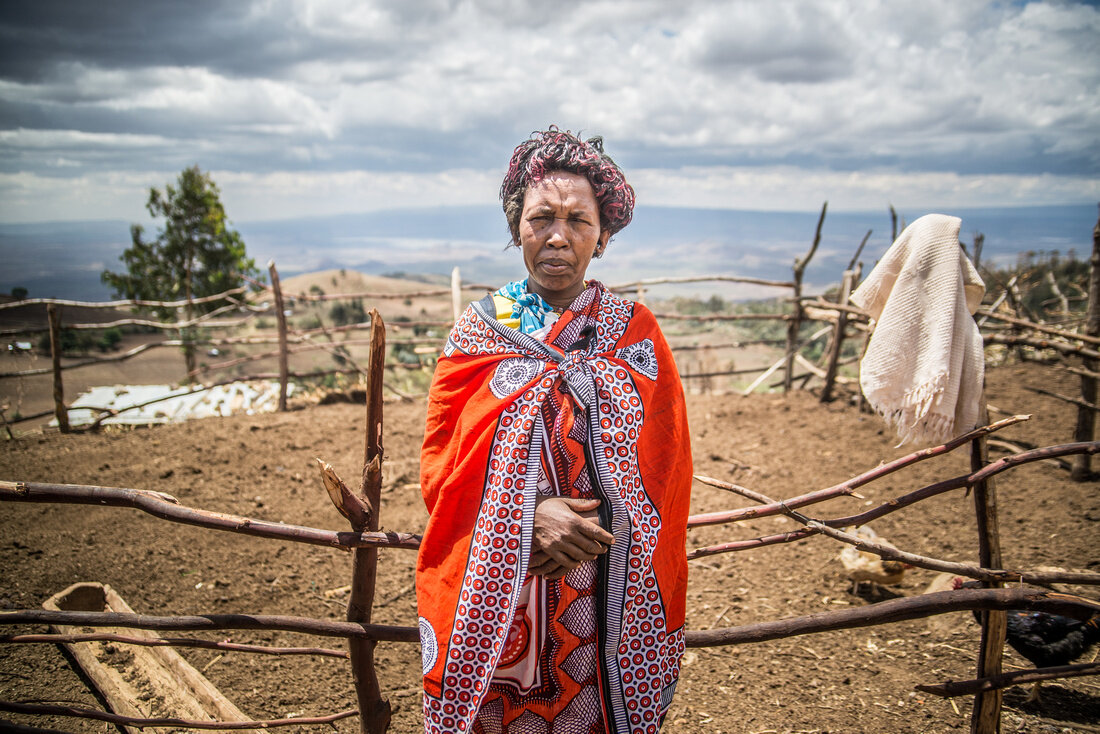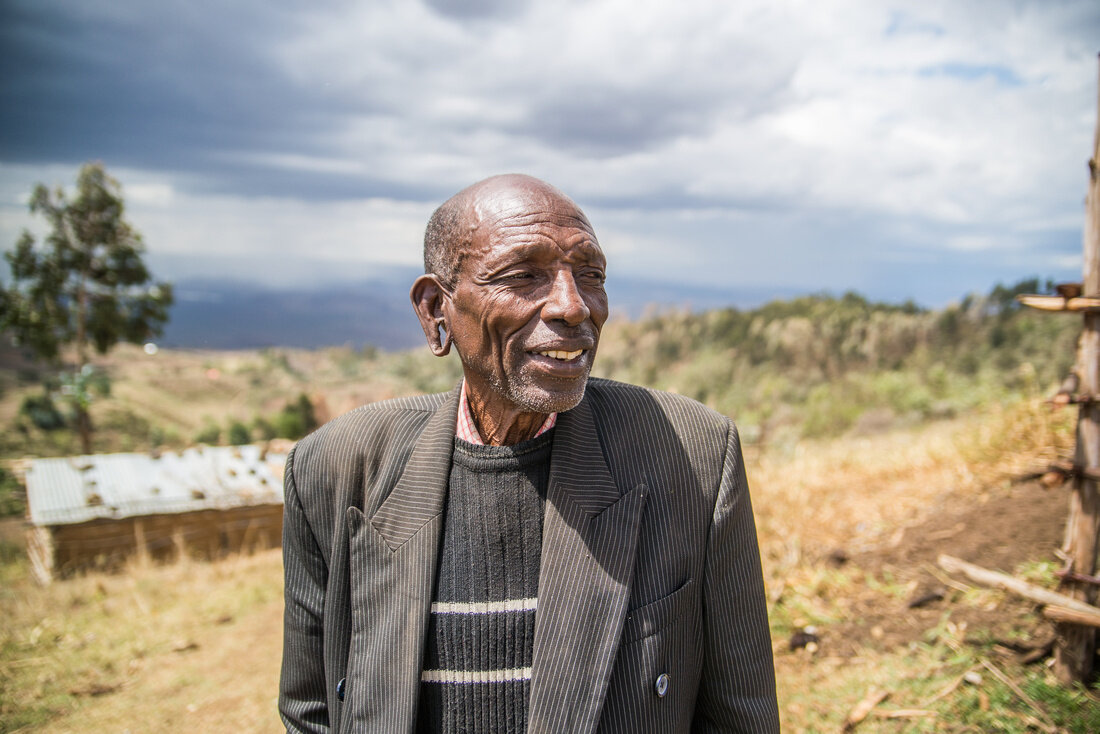From One Ridge to the Next
The Dorobo reaching the Dorobo
by Heidi Thulin, photography by Zachary Murphy
The Dorobo of central Kenya are a private, peaceful people who live in the wooded hills along the Great Rift Valley. For centuries, they survived by hunting wildlife and foraging for medicinal and edible plants. In recent years, because of issues with poaching, Kenya made it illegal to hunt game animals, forcing the Dorobo culture to adapt and become more agricultural.
One skill they still treasure is beekeeping, and throughout their forests, Dorobo honey logs dangle from treetops. It takes several months for a bee colony to establish itself inside one of these logs. The Dorobo men monitor the logs regularly and patiently wait for the bees to arrive.
A Dorobo man prepares the smokey moss.
The men lower the honey log and place the smokey moss in the hive's entrance, enticing the bees to leave the hive.
A Dorobo man enjoys the fruit of his honey harvest.
After many more months, honey from the log is ready for harvest. By using a pulley system, the men carefully lower the log to the ground. One man rapidly rubs two sticks together to light a small fire and places a few of the embers into a clump of moss. He blows and blows until the moss and air is thick with smoke. He places the smokey bundle at the entrance of the beehive, and the bees swarm out. Swiftly, the other men reach inside the hive and scoop out the precious crystals of honeycomb. They work silently and quickly, and whenever they are stung, they stoically hide the pain.
After they've collected the honey, they remove the smoking moss, return the log to its high position in the tree, and take a moment to enjoy the sweetness of their labor.
Africa Inland Mission’s ministry among the Dorobo began in 1991. For an entire year, Shel Arensen and his team spent time with his Dorobo neighbors, learning their customs, practicing their language, and building long-lasting friendships. One of the best ways to learn from the Dorobo was to sit around a bonfire with them, “eating the news” with them, and listening to them discuss current events. They shared the best places to find honey, they talked about their families, and they told stories from the past. Oftentimes, they insisted Shel contribute to the conversation, and this became a natural way for him to introduce them to Bible stories.
Dorobo men often "eat the news" and drink chai together around a bonfire.
To their neighboring tribes, the Dorobo are seen as outcasts. The Dorobo knew about churches, but because they never felt accepted by the other groups, they never set foot inside them. As Shel and his team brought the message of Jesus to the Dorobo homes and villages, the Dorobo listened. They gained self-respect as a people chosen by God, and it changed them completely.
We never thought God loved us as a people, because other groups look down on us. But [Shel] was the first person to tell us that God loves us as Dorobo and that it’s ok for us as Dorobo to become Christians. He’s the first person who told us that what we are is important, that God loves us how we are.
Pastor Stephen
After accepting Christ and being baptized, several Dorobo men have attended discipleship training courses or Bible colleges. They go on outreach projects together and teach at pastor’s conferences. The Dorobo have found self-worth, acceptance, and salvation through Jesus Christ, and it is that message that inspires them to bring the Good News to their Dorobo neighbors on the next ridge.
Africa Inland Mission aspires to bring the gospel to unreached people groups, equip church leaders among those groups, and then give them the opportunity to join us in carrying out the Great Commission’s calling. The Dorobo Church is doing just that. It is vibrant and enthusiastic, and may God continue to fan the flames of this indigenous church movement.
A small group of believers gather to worship together outside a village home.
As hunter gatherers, Dorobo people traditionally never share. When you have a kill, you eat as much of the meat as you can and hide the rest. But as they’ve become believers, they’ve learned how to be generous. Along with that, they’ve learned the importance of telling others about the truth of Jesus.
Shel Arensen











